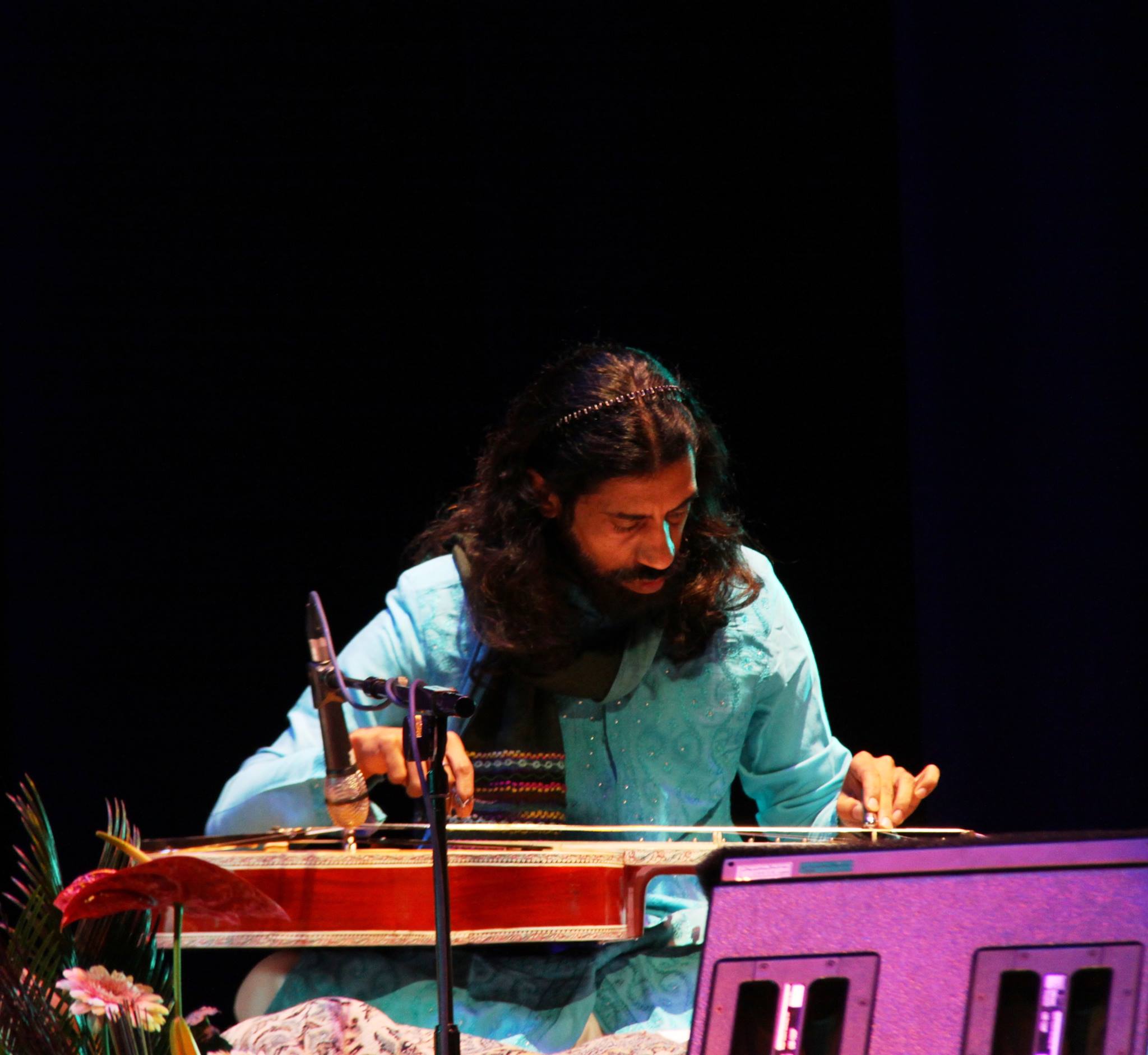
Amanu Manish, a skilled slide guitar player and one of the most prominent figures in Indian classical music, who has trained in the Senia Maihar Gharana tradition, will be performing at the 40th International Fajr Music Festival. In this special interview, we discussed his musical experiences and connection with different cultures.
You are one of the international artists performing at the 40th Fajr Music Festival. How do you feel about performing in Iran?
I am very excited to perform at such a prestigious festival. I am eagerly looking forward to this event.
Have you performed in Iran before? If yes, what memories do you have from your previous performances?
I have performed in Iran three times, and each time has been an extraordinary experience presenting a unique blend of music. Moreover, we have made wonderful friends during these trips.
How familiar are Iranian audiences with Indian classical music? Do you face any challenges in communicating with them?
Iranian audiences are now quite familiar with Indian music. My instrument adds a delicate touch and a pleasing melody to our music ensemble.
What pieces will you perform at this festival? Have you prepared any special compositions for this event?
We will perform some pieces from past concerts and also debut a few new compositions!
You started playing slide guitar at a young age. What initially attracted you to this instrument?
As a child, I would see my father playing the Hawaiian guitar, and naturally, I became interested in this instrument. Eventually, it became part of my spiritual journey as well.
What impact has the Senia Maihar Gharana tradition and your training had on your playing style?
It has had a profound impact both musically and in terms of playing techniques.
How did your collaborations with maestros like Pandit Basant Kabre and Pandit Brijbushan Kabre shape your musical identity?
From them, I learned the essence and subtleties of music, especially the music of ragas.
You made a documentary on slide guitar for Indian television. Could you explain this project and its role in introducing this instrument?
This project was very dear to me because I wanted to showcase the story of how the Hawaiian guitar was adapted for performing Indian classical music.
How does Indian slide guitar differ from its Western counterpart? Are there unique techniques that make it distinct among string instruments?
Since this instrument is primarily used in Indian classical music, we use different picks for the right hand and a long steel bar for the left hand. Also, the tuning of the strings is completely different.
You modified “Chaturangui” and renamed it “Chaturangini.” What inspired these changes, and what new features did you introduce?
I mainly introduced a new method for tuning the strings. My playing style encompasses various genres, including Indian classical music, Sufi, fusion, and meditation music.
What specifically characterizes your performance with intricate pieces, melodic phrases, and staccato patterns?
Through deep thought, constant experimentation, trial and error, and relentless effort.
How do you see the future of slide guitar in Indian classical music? Has it become more popular in contemporary music?
This instrument is rapidly evolving and has a bright future. It definitely will become a global phenomenon in the future.
You have performed in countries like Russia, Iran, Sri Lanka, and Nepal. Which of these experiences was most unique for you?
On tours in these countries, various genres of music were performed. In every country, we were met with warm receptions, and each place enriched us with incredible hospitality.
Have you collaborated with non-Indian musicians? Have you fused Indian classical music with other styles?
I have been doing this consistently for over 25 years! My YouTube channel is a testament to these collaborations.
Do you have plans to collaborate with Iranian musicians or perform together in Iran?
Yes, if the right opportunity arises.
You won the “Alex North” award in 2017 for the soundtrack of the film Rebellious Flower at the Spain Film Festival. How did you enter the world of film music, and how did this award impact your career?
This experience taught me how to work in a studio, compose music, and merge audio-visual mediums. The award was completely unexpected, which is why it holds a special place in my career.
You describe your music as “a celebration of love and meditation.” How do you convey this concept in your works?
By simply being myself!
What are your future projects? Are you working on a new album or any specific musical activities?
Yes, I am in the process of creating a new group/band for spiritual and meditation music.
What message do you have for Iranian listeners and fans of Indian classical music?
Listen to this genre with an open mind and heart, as it is essentially a very deep sonic experience.
Is there any topic you’d like to discuss that hasn’t been addressed in previous interviews?
My music and spiritual journey have always gone hand in hand. My message is that all musicians should have a deep understanding of spirituality, as it makes their art a conscious masterpiece.
Interview By Farid Parish
